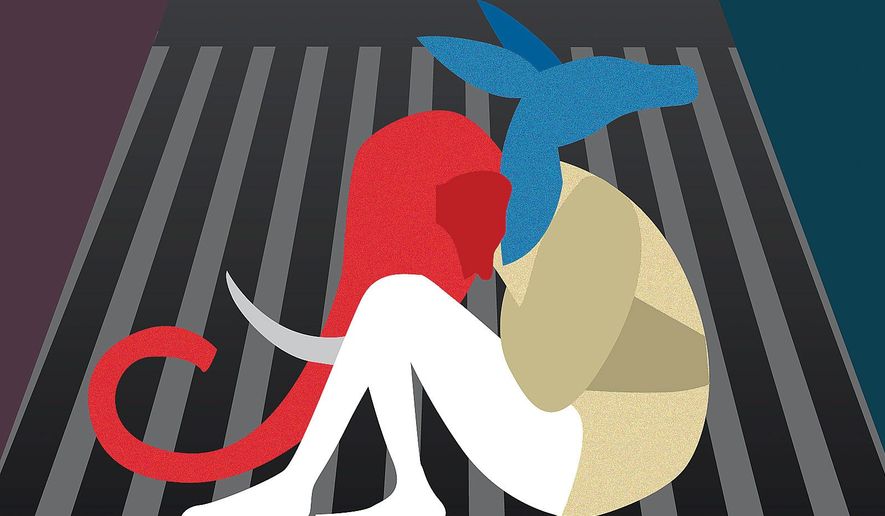OPINION:
In the snows of New Hampshire, yet another American president could emerge pledging to fix Washington — the political gridlock and the pervasive influence of “evil” special interests and K Street lobbyists. And relieve the worst burdens on middle class prosperity — skyrocketing health care costs, tuition and student debt, and the nation’s rickety transportation infrastructure.
The Obama presidency failed to alleviate most of these or exacerbated problems through blind faith in government or simple inaction. The Trump administration — and the GOP when it controlled Congress — has delivered too little.
Truth is that voters are as much to blame as the political class — they won’t accept the medicine required to cure these ills.
The average employer-paid family health plan now exceeds $20,000, and millions are losing coverage or simply opting not to purchase insurance. For employers providing decent benefits, these costs make raising wages and investing to add good paying jobs terribly expensive — and these worsen inequality and slow the progress of women and minorities.
Americans pay nearly twice as much for health care as folks in other industrialized economies but the latter don’t have the legacy of Washington encouraging — most recently through the Affordable Care Act — pricing monopolies in local hospital and medical specialty markets, and enabling the avarice of pharmaceutical companies through permissive Medicare reimbursements.
Instead, our European brethren have established single payer systems — the U.K. model where patients hardly see money changing hands — or the German model where prices for drugs and other services are heavily guided by government agencies.
Americans don’t want to give up their private health insurance — sorry Sens. Sanders and Warren, single payer plans are out. Strong congressional Republican resistance to price controls with teeth likely reflects the sensibilities of a large enough block of voters and stop those from becoming law in the Senate.
Roads, rails and flood protection all need huge upgrades — especially in the face of more severe storms. However, raising the gas tax — frozen since 1993 — has become the new third rail of American politics, and toll roads have not worked out in many places. Charging the true cost of mass transit and bus service has never been practical — witness the perennial subsides those require.
Student debt discourages millennials from starting families and buying homes. Forgiveness of even half the $1.6 trillion in overhang would be a daunting task. Either selling the assets of universities who conned students into believing an expensive liberal arts degrees would yield a job paying well enough to justify the loans or taxes on older generations are required. Neither is popular so nothing happens.
College tuition has been rising at three times overall inflation since 1979 but I detect little groundswell for regulations that would force administrators to trim their numbers and student services or compel faculty to educate more and indoctrinate less.
Democratic presidential hopefuls promise to make as many of these things free by taxing the most successful Americans. Out front, Sen. Sanders offers arguably the most far-reaching agenda and a terribly aggressive wealth tax.
Sen. Warren has raised her standing in the polls by railing against big corporations, insurance companies and government, and then asserting she has plans to fix most everything, except perhaps cold Minnesota winters, with funding from her own wealth tax.
Independent analyses indicate Ms. Warren’s more modest wealth tax would not raise even half the revenue she claims, and none of the socialists in the race consider the consequences of confiscation on longer term innovation and investment.
Sooner or later ballooning health care costs will compel solutions, highways will simply collapse and more young people will skip college and graduate school. Employers will discover they weren’t learning much there anyway, hire high school graduates and run training programs and better focused employee tuition plans that deliver more cost-effective results.
In the end, Americans will likely get either government-run health care or terribly deep subsidies for private insurance, the road and rails repaired and higher gas taxes and fares to pay for it, and perhaps some kind of debt relief and free tuition — the states are already doing more of the latter.
Without real reforms, though, average workers can count on forking over half or more of their income and be poorer to pay for it all — just like the Europeans. Americans won’t be happy but will have little way out.
• Peter Morici is an economist and business professor at the University of Maryland, and a national columnist.




Please read our comment policy before commenting.